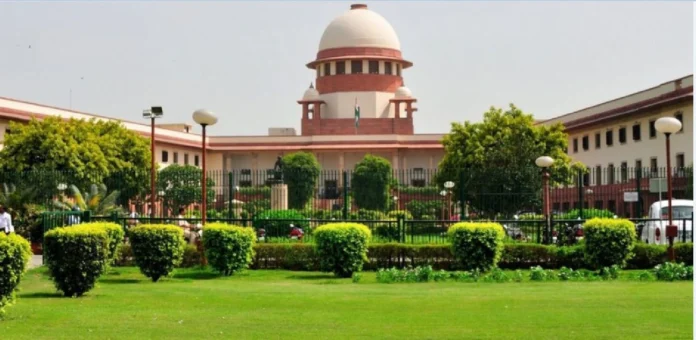The Supreme Court on Tuesday set aside a Punjab and Haryana High Court order of 2019, which imposed costs of Rs 10 lakh each on musician Vishal Dadlani and political activist Tehseen Poonawalla over their alleged derogatory tweets against a Jain monk.
Expressing its strong displeasure over the High Court verdict, the Bench of Justice AS Oka and Justice Ujjal Bhuyan observed that a court’s functions did not include moral policing.
While quashing the case against the appellants, the High Court held in 2019 that the decision to impose costs would ensure that the appellants refrain from mocking any head of a religious sect, just to gain publicity on social media platforms like Twitter.
Dadlani and Poonawalla had been booked for the offences of promoting enmity between religious groups and outraging religious feelings after they allegedly posted defamatory tweets against Jain monk Tarun Sagar (now deceased), who delivered a speech in the Haryana Legislative Assembly in 2016.
Dadlani posted certain tweets on his account the following day to criticise the monk’s appearance at the Assembly and his speech. He also raised objection over the presence of religion in governance.
Posting similar tweets, Poonawalla questioned why women were shamed when they were semi-nude, whereas monks were termed as holy when they walked nude.
Dadlani later apologised for his tweets and also met the Jain seer personally to seek his forgiveness. He, however, maintained that religion and governance should remain separate.
Jain seer Tarun Sagar said that he had forgiven both Dadlani and Poonawalla for their tweets, remarking that both had made the comments, while remaining ignorant of the Jain lifestyle and ways.
A non-Jain third party, however, filed a criminal case against Dadlani and Poonawalla.
The Apex Court today observed that once the High Court concluded that no offence was committed by Poonawalla and Dadlani, there was no question of imposing costs.
The High Court ought not exercise advisory jurisdiction by telling the appellant that the contribution made by the priest was much more than what the appellant and the other co-accused had contributed, it added.
The Bench pointed out that the High Court was perhaps swayed by the fact that the appellant and the other accused criticised the priest of a particular religion.


